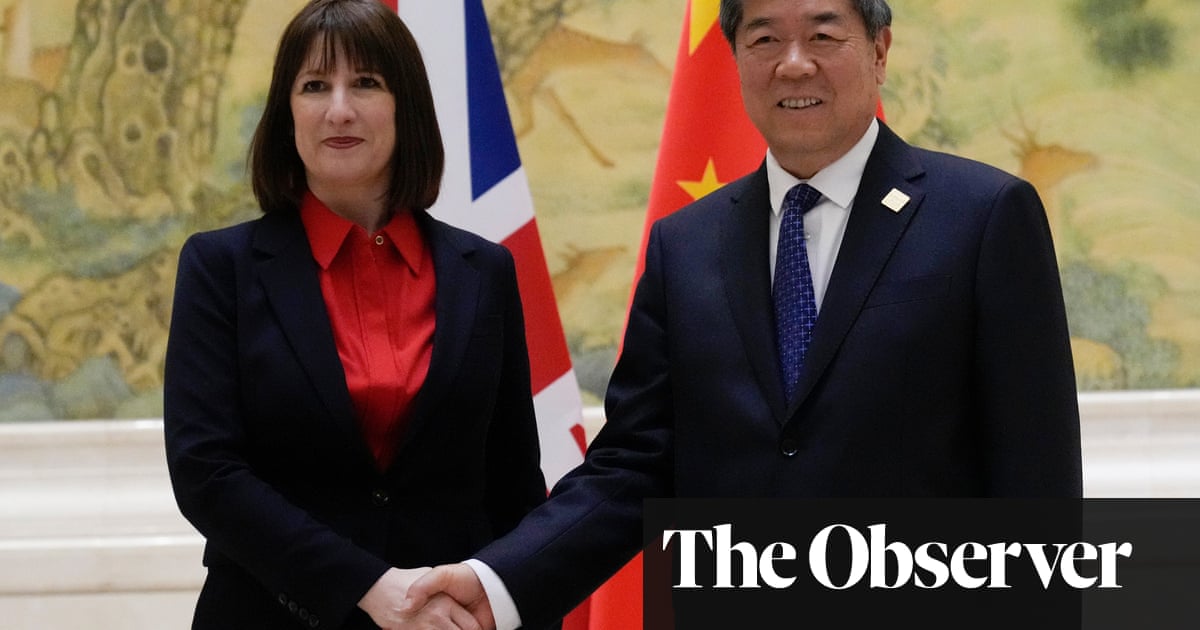A new package holiday promises to whisk tourists in the Yucatán Peninsula from plush hotels to Mayan ruins on a new airline and freshly-laid train tracks – an adventure brought to them entirely by the Mexican army, which now does luxury tourism when not fighting crime.
That an institution with a history of human rights violations must now learn the art of customer service is just the strangest aspect of a deeper trend, as Mexico’s military plays an ever-greater role in the country’s civil administration, with alarming implications for its democracy.
On Monday the full route of the controversial Mayan Train will open a year after it was partially inaugurated by then president Andrés Manuel López Obrador amid criticism over its environmental impact and economic viability.
López Obrador had turned to the army to have the train built on the double – along with a string of new airports and hotels along the tracks, all of which it will now also run.
Between trains, planes and checkpoints, the Mexican army has perhaps never been so ubiquitous. Though its presence in public life had been developing for a long time, experts mark two key moments.
The first came in 2006 with the start of the “war on drugs”, when the army was deployed to fight organised crime groups and took on a far greater role in public security.
And the second came in 2018, when the leftwing populist López Obrador became president.
Before taking power, López Obrador promised to return the soldiers to their barracks. Upon gaining it, he took the military’s role in public security to a new level and gave it roles in areas once the reserve of civil institutions.
“There were high hopes that López Obrador would review Mexico’s security policy,” said Santiago Aguirre, director of the Centre for Human Rights. “I don’t think anyone anticipated what would actually happen.”
López Obrador dismantled the federal police, which had been stained by corruption scandals, and created a new national guard to take its place: a 130,000-strong force that was nominally a civilian institution but took the great majority of its personnel and leadership from the army.
Meanwhile López Obrador came to rely on the armed forces to build his flagship infrastructure projects quickly, cheaply and with little transparency.
Along the way, the military accumulated a portfolio of responsibilities and companies that includes airports, seaports and customs, as well as a passenger airline, the Mayan Train and a chain of luxury hotels.
“The military has been inserted into the economy,” said Aguirre. “We don’t yet know how this will play out.”
In October, Claudia Sheinbaum – a close ally of López Obrador – took over as president, having led Morena, the party he founded, to a landslide election victory.
Shortly before she came to power, Morena used its new supermajority to change the constitution, officially transferring the Guardia Nacional to the military, leaving Mexico without a federal civilian police force.
Sheinbaum has since shown signs she will follow her predecessor’s path, praising the military and announcing that money saved by eliminating independent regulatory agencies would go towards giving soldiers a pay rise. She has also emphasised the need to rebuild Mexico’s police forces and their investigative capacity.
Sheinbaum has dismissed concerns about the military’s growing power, arguing that the military answers to the president.
“Maybe people don’t understand it from the outside, but it’s not militarisation,” she told the Financial Times. “The Mexican army comes from the Mexican revolution, it comes from a social revolution, it doesn’t come from the elites.”
While it is true that the origin of Mexico’s army is particular and – unlike many other counterparts across Latin America – it has never launched a coup, it is an opaque institution with a long record of human rights abuses, said Aguirre.
With its growing role in public security, “the human rights violations will continue”, said Patricia Solís Minor, an expert on Mexico’s armed forces.
Such violations – in addition to reports of corruption – are only becoming more difficult to investigate, “because the army has taken on civil tasks without assuming the controls and check and balances of the civil world”, added Aguirre.
Meanwhile, the expanding role of the armed forces implies the hollowing out of the capacity of civil institutions – only entrenching the government’s dependence on the military.
For now, the prospects of reversing the process and restoring these tasks to civil institutions are slim, not least because the shift has been solidified by a raft of legal and constitutional changes.
“Demilitarisation is not on the horizon,” said Aguirre. “Right now, the most important thing is to preserve at least some civil controls.”

.png) 3 weeks ago
9
3 weeks ago
9













































